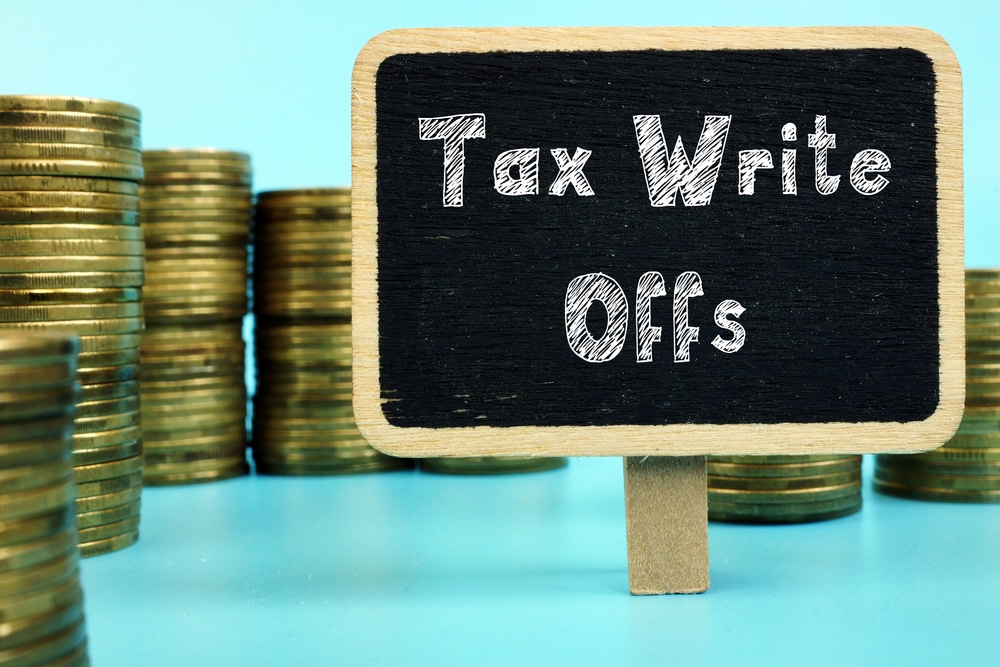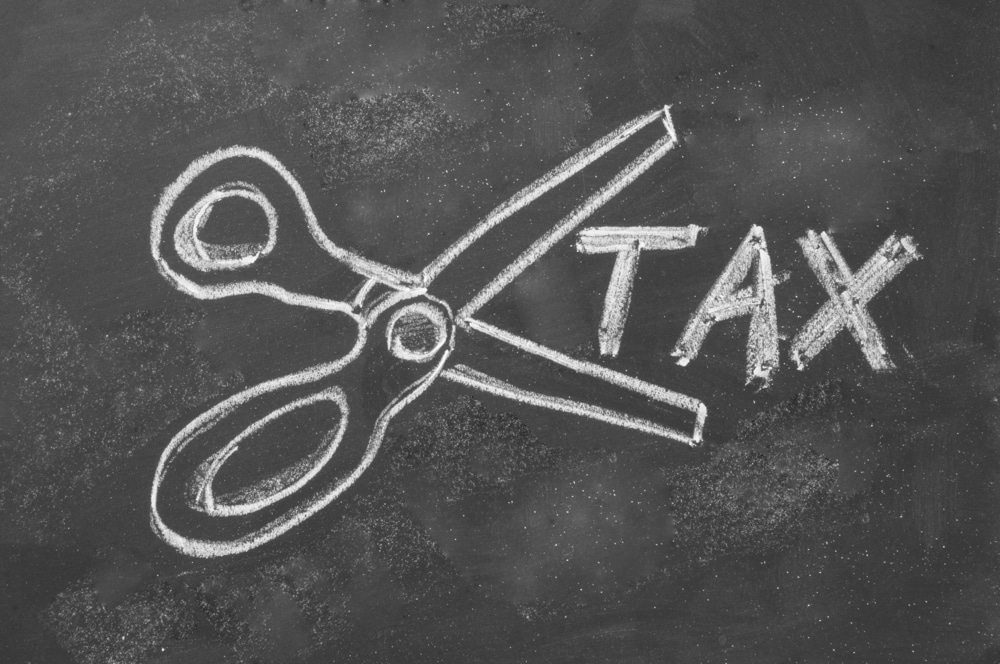As a small business owner, you are constantly striving to find ways to either save money or increase profits while simultaneously tackling the demanding tasks of running a business. Tax is often an afterthought as you focus on other more urgent matters, but it is essential to ensure your operation remains successful and can help you save money.
You may already be aware of some common deductions – like supplies and office expenses – but there are many more that you might not think to include on your business tax return. That’s why I have put together this comprehensive blog to help ensure you don’t miss out on any hard-earned money due to missed deductions.

What is a Small Business Tax Deduction or Tax Write-Off?
A tax write-off (or tax deduction) is a business expense that can be offset against its taxable income. It effectively reduces the amount of taxes owed, as the business eliminates a portion of its taxable income when deducting eligible expenses. To qualify for small business tax deductions, the expense must meet the criteria established by the Canada Revenue Agency (CRA).
How Do Business Expenses Qualify for Tax Deductions and Write-Offs?
Small business owners can generally deduct from their total income any reasonable costs related to keeping the company operational and functioning. In addition, these business expenses must be necessary and justified in order to earn business income.
Expenses are also required to be supported by valid receipts or invoices, otherwise, the deductions may be denied by the CRA in the event of a tax audit. Therefore, it is important to maintain complete tax records and keep them up-to-date.
20 Most Common Small Businesses Tax Deductions and Write-Offs
There are many expenses small business owners can claim to offset against taxes. It is important to remain proportionate and reasonable when it comes to claiming these deductions. Below are the 20 most common operating costs associated with running a small business that is eligible for business tax write-offs and tax deductions.
Start-up Costs
When starting a business, you are allowed to deduct certain costs incurred before the operation begins. However, these expenses can only be claimed if the business opened during the tax year when the amounts were spent. All types of start-up costs can be tax-deductible, including incorporation costs, legal and accounting fees, supplies, and machinery and equipment purchases.
Marketing and Advertising
Marketing and advertising are one of the most essential costs associated with promoting a small business. It includes traditional methods such as radio, television, and newspaper advertisements; and digital marketing such as social media promotion. Registering domain names and web hosting are also tax-deductible business expenses, allowing the company to save money while promoting its products and services.
Business Licences, Dues, and Memberships
All annual licence fees associated with running the business are tax-deductible. Additionally, any fees or dues paid to maintain membership in a professional, trade, or commercial association and subscriptions to certain publications can also be deducted. However, the business cannot deduct club membership dues if the primary purpose of the club is recreational, dining, or sporting activities.
Supplies
Supplies used in a business setting can be tax-deductible, which means that the costs associated with certain items utilized to provide goods or services can be written off on the income tax return. The type of supplies will vary depending on the nature of the business. For instance, cleaning materials used by a commercial facilities cleaning company or tools used by a landscaping business are both deductible expenses.
Office Expenses
For office expenses, you can deduct the cost of small items such as pencils, pens, paper clips, and stationery. However, more expensive items such as filing cabinets, chairs and desks are not eligible for tax deductions of the entire amount in the year of purchase. These are capital items and they are depreciated based on the asset class.
Home Office Expenses
When it comes to the business use of home, there are certain expenses that can be deducted from taxes. These include heat, electricity, insurance, maintenance, rent, mortgage interest, and property taxes. Additionally, any other expenses associated with running a small business from home are also eligible for deduction. However, these expenses must be proportionate to the actual space used for business purposes. For instance, if your home is 1,000 square feet and the designated area used for business is 150 square feet, you can claim 15% of the home-related expenses on the income tax return.
To qualify for home office expenses, your home workspace must also meet one of two criteria: it must be your primary place of business, or you must use the space exclusively to generate income through regular interactions with customers or clients.
Rent for Business
You can deduct expenses related to the rent of any property used for business purposes. This could be the land and building where your commercial establishment is located. For workspace in your own home, it should be claimed as Home Office Expenses discussed above.
Salaries, Wages, and Other Benefits
As the employer, you can deduct gross salaries and wages, the employer’s portion of both Canada Pension Plan (CPP) contributions and Employment Insurance (EI) premiums. In addition, any premiums that you pay for an employee for a disability, accident, sickness, or income insurance plan are also tax-deductible business expenses.
Subcontractor
If you have freelancers or independent contractors working on business-related tasks, the costs of hiring them are tax-deductible.
Meals and Entertainment
When it comes to food, drinks, and entertainment expenses, the maximum amount you can claim is 50% of the total cost. This limit also applies if you travel for business or attend a convention, conference, or other similar events. However, there may be special occasions that could affect how much of your meal claim you can deduct, and the 50% limit may not apply. It includes situations where you are billing your client for the cost of meals and entertainment, and these costs are shown on the bill. Also, if an office party or similar event is being held, and all employees from a particular location are invited, then the limit for such an event is six times per year without being affected by the 50% limit.
Business Travel
Travel expenses incurred when earning business income can be deducted from taxes. Commonly included in this deduction are the costs of hotel accommodations, public transportation fares, and meals. Depending on the situation, this deduction may come with a 50% limit on food, beverage, and entertainment costs associated with the travel.
Management and Administration Fees
With regards to operating a business, there are numerous management and administrative fees that can be written off from taxes. These fees may include bank charges for processing transactions, as well as any expenses related to organizing and managing a business.
Interest and Bank Charges
If you have taken out a loan for business purposes or to purchase an asset for the purpose of conducting business, you can write off the interest that comes with it. However, there are some limitations. For instance, when purchasing a passenger or an emissions-free vehicle, you can only deduct a certain portion of interest from the loan. Additionally, when buying vacant land, the interest you can deduct is limited to the income generated from the land after other business expenses have been paid. The CRA does not allow you to use any remaining amounts of interest to create a loss or deduct them from other income sources.
In the case where you pay a fee to lower the interest rate on the business loan, it is a deductible expense. This includes any penalty charges that a lender applies for paying off the loan ahead of its due date. In such cases, you should treat these fees and penalties as prepaid interest and deduct the cost over the remaining term of the business loan.
In addition, if you are taking out a loan to purchase or upgrade the business property, certain fees can be deducted over the following five years. This includes application fees, processing costs, appraisal fees, insurance charges, loan guarantee amounts, finder’s fees, and other legal charges related to obtaining financing. To deduct these expenses, you must divide the total cost by five and evenly spread out the deductions over each subsequent five years, regardless of the term of the loan.
If you happen to pay off your loan before the end of the term, any remaining financing fees can be deducted in the year of repayment.
Property Taxes
Property taxes incurred for small businesses are an eligible deduction on the tax return. For example, if you own a property used primarily for business, such as a storefront or office space, you can deduct the property tax related payments.
Telecommunications and Utilities
You can claim tax deductions for telecommunication bills and utilities related to your business activities. This includes gas, electricity, water, phone, and internet expenses that are necessary to generate business income.
Insurance
Business owners can write off the cost of ordinary commercial insurance premiums for any buildings, machinery, and other equipment used in their operations. This includes protection against physical assets being lost or damaged due to unforeseen events. Other business insurance costs related to motor vehicles can also be deducted from taxes.
Bad Debt
If you have determined that an account receivable is uncollectible, it is considered a bad debt. In order for a bad debt to be eligible for a tax deduction, the amount must have already been included in income during the current tax year or in a previous tax year.
Shipping and Delivery
The cost of mailing and shipping items for business-related purposes can be deducted from taxes, including the price of postage stamps, envelopes, fees related to renting a P.O. Box, as well as costs associated with delivery service providers.
Professional Fees
You may be able to deduct fees that you paid to external professionals for advice and services, such as accounting or legal costs. These fees cover a wide range of expenses, such as consultations, record-keeping assistance, preparing and filing business income tax returns, and GST/HST returns.
Vehicle Expenses
Expenses related to operating a motor vehicle for business purposes are tax-deductible. This could include fees for registration and licensing, insurance, fuel, maintenance and repair costs, interest on money borrowed to purchase the car, and leasing expenses. Capital Cost Allowance (CCA) may also be claimed as part of a tax deduction.
If you use a vehicle for both business and personal, only the portion of the expenses related to earning income from the company can be deducted. To support this claim, it is essential to record the total kilometres driven for both personal and business use. The Canada Revenue Agency (CRA) recommends keeping a logbook or journal to record your vehicle’s use and business expenses.

Frequently Asked Questions (FAQ) on Business Tax Deductions and Write-Offs
This FAQ section will answer some of the most commonly asked questions regarding business tax deductions and write-offs, including information about eligible business expenses and possible restrictions related to claiming them.
Q: Can I write off expenses related to buying clothes appropriate for conducting business with clients?
A: Unfortunately, no. Any wardrobe purchases are considered personal expenses and cannot be deducted from taxes. However, there are some exceptions to this: if you need to wear a uniform for work or special safety clothing for hazardous tasks. These clothing can be written off as a deduction.
Q: If I received a parking ticket due to a client meeting running over its allotted time, can I deduct this amount from taxes?
A: Expenses such as fines and parking tickets cannot be deducted from taxes. The non-deductible expenses on fines and penalties also apply to interest and penalties on late payment and late filing of tax returns.
Q: How can I claim the cellphone I use for both personal and business?
A: You can only deduct the portion of your phone bill that corresponds to business usage. This can be calculated using a reasonable method, such as time spent or data usage.
Q: I use the internet at work. How do I claim the business expense?
A: If your primary place of business is a commercial or office setting, the cost of internet services can be claimed in entirety for business use. However, if you work from home and have established a home office space, only a portion of the internet services cost can be claimed based on the amount of time spent or data usage for business activities.
Q: What is the deduction allowed for using one vehicle for both business and personal use?
A: If you have used your vehicle for both business and personal purposes, the tax deduction will be determined based on the proportion of the total number of business kilometres driven during the year. For each trip taken, you would need to record the date, destination, kilometres driven, and reason for the trip. For example, if 20,000 total kilometres have been driven during the year and 8,000 kilometres were driven for business, you can claim 40% of the vehicle expenses.
Q: Can I write off two office spaces, such as one at my business and one at my residence?
A: Generally, no. Only one of these office spaces can be claimed as an allowable deduction. Typically this would be the space that is primarily used to conduct business operations.
Q: Do I need to keep physical copies of receipts if I file the tax return electronically?
A: You must keep all receipts and invoices for at least six years after filing the tax return for potential audit purposes. This is because an auditor may require proof of business expense reported on the tax return as evidence of compliance with Canadian tax regulations.
Q: What is the process of deducting business purchases, such as equipment and laptops?
A: When you buy items intended to last for multiple years, such as laptops or other equipment, you must recognize them as capital costs rather than an immediate business expense. The CRA requires you to depreciate and deduct the cost of the business assets over a number of years based on the asset class. This type of deduction is called a capital cost allowance (CCA).
Conclusion
Small business owners often have a lot of expenses, from office supplies to travel costs. Fortunately, many small business tax deductions and write-offs can help you reduce your business taxable income and save money on taxes. Taking advantage of all the available deductions is key for all small business owners—just make sure you understand which ones apply to you and how they work. If you have any questions about filing business taxes and what expenses can be deducted or written off, contact us for a free consultation.
